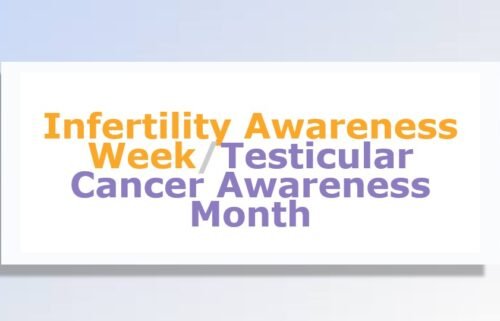Coronavirus gives global doctors’ group a new frontier: US nursing homes

As a coordinator and communicator with Medecins Sans Frontieres (Doctors Without Borders), Heather Pagano has worked in Liberia helping communities fight Ebola; with refugees in Nigeria fleeing conflict; and in South Sudan, where violence has forced millions of people out of their homes.
She never expected to be working in Detroit.
But now Pagano is helping lead a team of MSF specialists who are applying their years of experience fighting infectious diseases in developing countries and war zones to help nursing home staff in Michigan cope with the coronavirus pandemic.
Pagano has found it’s not so very different from working in a developing nation. Nursing homes lack resources and training, staff are often suspicious of outsiders and they are overwhelmed by the workload.
“It’s a bit surreal to be here,” said Pagano, an American who has spent most of her career in other countries. “I did not expect to be on home soil.”
And she hardly expected to be helping health care workers in her home country learn about the basics of infection control and the debilitating stress of helplessly watching patients they are nursed for years die alone, without the support of family or friends.
The only other time MSF has worked in the United States was in 2012, after Superstorm Sandy devastated coastal areas of New York and New Jersey. The group set up a temporary clinic in Queens, helped out several nursing homes in Hoboken and assisted local teams working in Staten Island and Brooklyn.
Now the organization is back in the United States, helping nursing home staff to learn about infection control and deal with the mental stress of working at Ground Zero of the pandemic. The group has about 80 staffers in Michigan, working with migrant farm workers in Florida, with the homeless in New York city, in the Navajo Nation and in Puerto Rico.
Nursing homes have been especially hard hit by the coronavirus pandemic.
“Over half of the nursing homes in this nation right now, over 7,000 nursing homes in this nation, have a Covid patient in them,” US Centers for Disease Control and Prevention Director Dr. Robert Redfield said earlier this month in testimony before the House Energy and Commerce Committee.
“Recent data show that approximately 40 percent of all COVID-19 deaths in the United States are residents or workers at nursing homes and other long-term care facilities,” Sen. Maggie Hassan, a Democrat from New Hampshire, and colleagues wrote in a letter to the Federal Emergency Management Agency last week.
“We realized that this was maybe an environment where we can help,” Pagano said. “Nursing homes house very vulnerable people and don’t have the same resources as hospitals.”
Forgotten, neglected staff
They lack equipment, staff and training to start with and now, in a pandemic, those gaps have widened even more. Pagano said in some facilities, staff have been afraid to come to work, have become sick themselves or have even quit their jobs. The nursing homes then must handle the extra burden of a pandemic with even fewer staff than usual.
At the same time, conditions are ripe for the spread of an infectious respiratory disease, with residents sharing common areas as well as bedrooms, and staff moving from one person to another, providing hands-on care throughout the day.
The US isn’t the first developed country to get help from the international medical aid group for this pandemic. MSF teams have also deployed in Italy, Spain, Belgium, Portugal and France, Pagano said.
They have been training staff in the basics of hand hygiene and the correct use of personal protective equipment, including how to properly don and doff gloves, masks and gowns to avoid contamination.
‘They want to do their best’
They’ve also made a point of focusing on cleaning staff.
“The cleaners, or environmental services staff as they are called, often don’t have a lot of training about infection control or the virus itself,” Pagano said. Not only are staff given little to no instructions about how to clean to effectively control such a contagious virus, they aren’t told the basics of how the virus behaves.
“They are kind of forgotten about and neglected,” Pagano said.
“If you don’t explain how the virus acts, if you don’t explain infection control, it’s very hard to effect behavioral change,” she added.
They had to start with the basics of cleaning. “People have a natural instinct when they are cleaning to start in the dirtiest place,” she said. “In infection control, that is the worst thing you can do. Some cleaners have just one rag, and you see them use that same rag for the toilets and the doorknobs.”
The MSF team demonstrate how it’s safer to start cleaning the less-germy places first, and save the dirtiest spots for last, to limit spread of infection.
It doesn’t take much explaining, she said.
“It’s like a light bulb goes on,” Pagano said. “They want to do their best.”
And while they’re dealing with basics of infection control, Pagano says the more challenging work is helping the nursing home staff deal with stress and guilt.
“One woman told me that she has to take anxiety medication now,” Pagano told CNN. “In Belgium, we have seen people with signs of PTSD and depression.”
‘Dying alone is horrible’
It’s understandable.
“There are people who have lost a family member or lost a coworker. One of the most insidious things about coronavirus is that people die alone. For the staff, watching people they have cared for for years die alone is a hard thing to see,” Pagano said.
It reminds her of clinics in Liberia during the Ebola epidemics in 2014-2016. Patients were frequently dumped at clinics and suffered alone, often dying in complete isolation because people were so terrified of the virus.
“Dying alone is horrible. No one should have to do that. And many residents haven’t seen family for months,” Pagano said.
And yet, there is no time to grieve and few outlets for the stress and guilt. So the MSF staff are offering self-care tips to staff.
“We have this wellness self-check that’s a three-minute tool,” Pagano said. “You ask yourself, how does your body feel now? Then you do some breathing exercises. When you label your feelings, they are less likely to be overwhelming.”
The MSF team is also finding nursing home staff, in particular, are not aware of mental health resources in their communities and many often don’t know they may have access to employee assistance programs for mental health care. “We are trying to take the stigma out of it,” she said. “There’s a huge problem with stigma.”
‘We have to think about where we consign our elders’
It has not always been easy. Just as in many countries in Africa, people are suspicious of strangers coming in to tell them what to do. Nursing home staff have often already been overwhelmed by regulators, who tend to show up, impose fines, and leave without offering any support or even clear direction about how to do better, Pagano said.
“They all are drowning under guidelines,” Pagano said. They have guidelines from the CDC, guidelines from state health departments. “Everyone’s telling them what to do, but no one is coming in and saying, ‘Here is something you can do that works,'” she said.
“Some are afraid you are going to come in and make them look bad,” Pagano added. “I feel like everyone always wants to find someone to blame. And the staff aren’t to blame.”
The experience has made Pagano realize the United States isn’t so different, in many ways, from Nigeria or South Sudan. “I was shook by the similarities,” she said.
And something else shook her. “We have to think more about how we treat our elders,” Pagano said.
“We have to think about where we consign our elders.”




